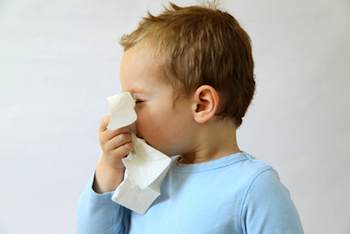- MENU
- HOME
- SEARCH
- WORLD
- MAIN
- AFRICA
- ASIA
- BALKANS
- EUROPE
- LATIN AMERICA
- MIDDLE EAST
- United Kingdom
- United States
- Argentina
- Australia
- Austria
- Benelux
- Brazil
- Canada
- China
- France
- Germany
- Greece
- Hungary
- India
- Indonesia
- Ireland
- Israel
- Italy
- Japan
- Korea
- Mexico
- New Zealand
- Pakistan
- Philippines
- Poland
- Russia
- South Africa
- Spain
- Taiwan
- Turkey
- USA
- BUSINESS
- WEALTH
- STOCKS
- TECH
- HEALTH
- LIFESTYLE
- ENTERTAINMENT
- SPORTS
- RSS
- iHaveNet.com: Health
Sue Hubbard, M.D.

Each cold or and other viral malady actually helps make your child stronger by building antibodies to combat future illnesses
This is the time of year when "everyone" seems to be getting sick. Fortunately, most of these illnesses are due to common viruses that circulate during the fall and winter.
Already, many parents are bringing in their young children with recurrent coughs and congestion, and strains of "can't we just have an antibiotic?" are ringing through the office. There isn't a parent who doesn't want to make their sick child feel better faster, but antibiotics are usually not the answer.
Antibiotics only work for infections that are caused by certain bacteria. Unfortunately, antibiotics do not treat viruses. Viruses cause most of the seasonal cough, cold, congestion and flu viruses that we see throughout the year. These viruses do seem more prevalent in the fall and winter as we all gather together in close quarters, out of the cold.
Viruses are easily spread from person to person, typically via droplets that are aerosolized when a person coughs or sneezes. The other sneaky thing about viruses is that a virus may be shed by a person before they even feel sick. The person sitting next to you at church, or next to your child at school, may be innocently spreading a virus 12 to 24 hours before they even begin to feel bad. Knowing that, it's hard to point a finger at who "made your child sick," as we all come in contact with germs throughout the day.
Many viral infections, such as colds, may have symptoms that last for up to 2 weeks. This is not a "quick fix" type of illness. In fact, the best medicine for a cold, viral sore throat, or the flu is fluids, rest, fever reducer and "tincture of time." An antibiotic given inappropriately may actually do more harm than good. By taking an antibiotic when it's not needed, you may increase the risk of getting an infection later that's resistant to typical antibiotic treatment. As you've probably heard, antibiotic resistance is on the rise, and one reason may be overuse of antibiotics when they're not necessary.
Taking an antibiotic is appropriate when needed for a bacterial sore throat, such as strep throat (which is documented by a strep test), or for ear infections in young children. When your doctor prescribes an antibiotic, it should be taken exactly as directed, and always finish the entire prescription. Even if your child is feeling better several days after starting an antibiotic, finish the medication or the infection may return.
Lastly, if you have any unused antibiotic, throw it away and never save it for another use. Don't give an antibiotic prescribed for one child to another child in the family; believe it or not, it's fairly common for one child to have strep throat while a sibling has a viral upper respiratory infection that doesn't require treatment with an antibiotic.
I tell my patients it's a good thing to "brag" that your child has never been on an antibiotic, almost like getting straight A's at school. And remember, each viral illness is actually helping make your child stronger by building antibodies to combat future illnesses. Small victories come with each cold!
Dr. Sue Hubbard is a nationally known pediatrician and co-host of "The Kid's Doctor" radio show.
Available at Amazon.com:
Copyright © KIDSDR.COM DISTRIBUTED BY TRIBUNE MEDIA SERVICES, INC.
AGING | ALTERNATIVE | AILMENTS | DRUGS | FITNESS | GENETICS | CHILDREN'S | MEN'S | WOMEN'S
Health - Get Smart About Antibiotics